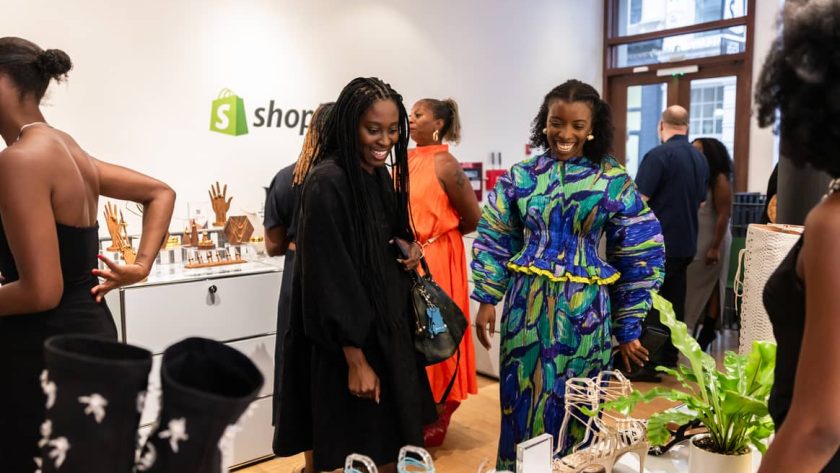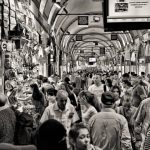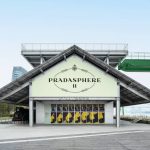Wholesale e-commerce platform The Folklore Connect, a marketplace for retailers to discover emerging brands that are geographically or racially marginalized, set up its wares in Shopify’s NYC headquarters during NYFW and held an opening night drinks reception and panel discussion on Thursday.
Amira Rasool, founder and CEO told FashionUnited, “The focus of The Folklore Connect is to spotlight brands either operating in emerging markets or that are founded by people of color that retailers are not necessarily making their buyers aware of.” She counts Saks, Nordstrom, Shopbop, Crate and Barrel among clients. Said Rasool, “We’re focused on Ecuador, Ghana, for example, and South Africa, where I lived for 2 years.” The crop of brands selected for the NYFW event spanned across 5 cities—New York, Atlanta, Toronto, Lagos and Capetown.
Rasool was determined that the fifth anniversary event take place during New York Fashion Week. “It’s a strategic move. NYFW is a big deal and it gives the brands an opportunity to show at the same time as the Ralph Laurens, further legitimizing them on the global stage,” said Rasool. “It’s when all the buyers and editors are in town, and we’ve made it easy as we’re in Soho just up the street from Spring Studios where the shows are. Even though we are wholesale e-commerce, we understand that people want to see the pieces up close and want to touch and feel the product.”
Rendoll, a womenswear brand founded by Nigerian fashion and beauty entrepreneur, Morenikeji Abina, features colorfully abstract printed separates. Roopa Pemmaraju’s brand RP New York prioritizes slow fashion and sustainable methods for whimsical embellishments and decadent prints in bohemian styles which pair with artisanal tasseled jewelry crafted in Bengaluru. The Lulo Project offers bold graphic and exotic bird prints in an aquatic palette to complement its loungewear shapes, a resort brand for laidback elegance with a modern African diaspora influence.
Buyers’ advice for brands hoping to get picked up by retailers
The panel discussion that followed featured two members from the retail world, Chrissy Kim, women’s ready-to-wear buyer at Bergdorf Goodman and Sharmaine Harrison, men’s ready-to-wear buyer at Saks Fifth Avenue; and two brand founders, Brooklyn-based Sade Mims of Elas, founded in 2015 and British born Ghanaian designer Emefa Kuadey whose brand Israella Kobla is based in Toronto. It made for an engaging conversation on how to succeed in a crowded marketplace from the perspectives of both the creator and retailer.
Kim outlined the main drivers a retailer looks for when evaluating a new brand: Does the product fill a void in the market? How does it differentiate itself? If these factors look promising, then a buyer will look into operational and logistical matters including the existence of line sheets, price lists and lookbooks.
Harrison described the importance of the “halo effect” of a new brand: Does it have a strong social media presence, has it been picked up by celebrities or is there already a buzz around the brand? And there was advice for new brands hoping to get picked up. Both buyers recommended a concise and well-informed email or deck with pertinent info in bullet points which includes price point, brand adjacent product or business models, and plenty of patience. “We are a 100-year-old company and there are a lot of processes,” said Harrison. “But your success is our success.”
Both buyers and founders prioritized good communication skills. “Once you are in, we are married,” said Kim. “We can find ways to work around hurdles or delays. We understand emerging brands and the challenges they face. But we have to have open communication for it to happen.”



